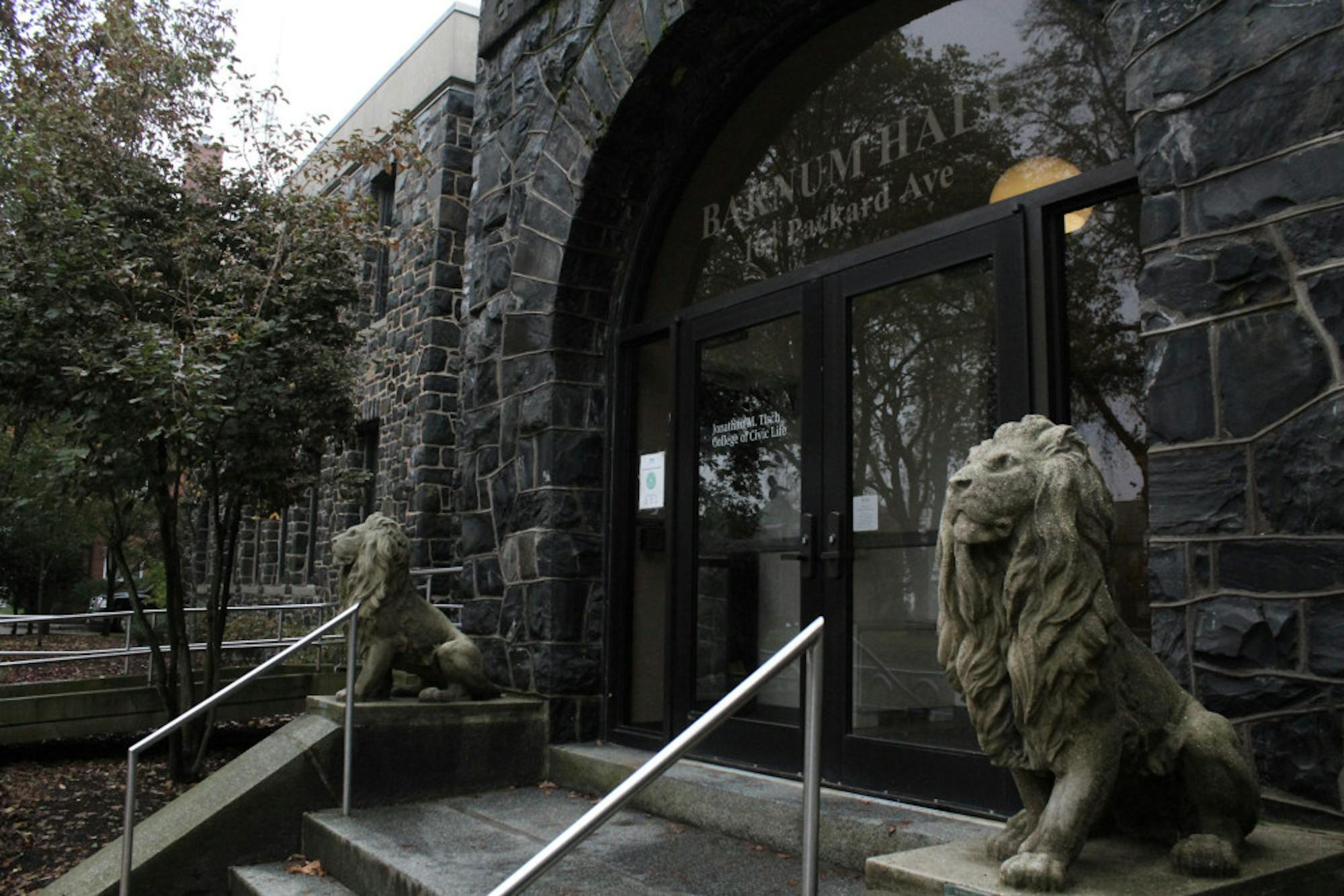Tisch College and the Tufts University School of Medicine hosted a Solomont Speaker Series event titled “The Aftermath of Dobbs - Abortion in America” on Oct. 26. The panel considered the implications of June’s landmark Supreme Court ruling in Dobbs v. Jackson Women’s Health Organization in the intersecting realms of healthcare policy and legislation.
The panel was moderated by Dr. Laura Baecher-Lind, dean of education affairs and professor of obstetrics and gynecology at TUSM. The three speakers, Dr. Danielle Roncari, Dr. Nina Ashford and Amanda Hainsworth, considered how the Dobbs ruling has impacted their respective fields from social, legal and clinical standpoints, as well as the work they have been doing to expand access to abortions and reproductive rights for both patients and providers.
“This conversation is going to be a difficult and challenging one to have, but an important one to have,” Baecher-Lind said. “This program tonight will aim to help us make sense of this decision from different perspectives, process its effects together as a community and ask questions about what Dobbsmeans for patients, providers, the future of healthcare policy and the future of our rights.”
On June 24, 2022, the Supreme Court ruled that abortions are no longer a constitutional right, overturning the 49-year precedent set by the Roe v. Wade ruling and handing the fate of abortion access to individual states. Following the decision, 13 states enacted or tried to enact trigger bans, and a total of 26 states have banned or are expected to enact major limitations on the procedure.
Here in Massachusetts, abortion access is protected under state law, with the ROE Act of 2020 extending that right to people as young as 16. Regardless, Roncari, an associate professor of obstetrics and gynecology at TUSM and director of family planning at the Ryan Residency Training Program, addressed the local impacts of Dobbs from a clinical perspective.
“We are seeing an increasing number of patients coming [to Massachusetts] from out of state, something that we haven't seen before,” Roncari said.
Roncari also referenced the potential challenges that could occur once a patient goes back home after receiving treatment in another state.
“We want everybody to get the best possible care and have no complications … but all the same complications that can happen if you live in Massachusetts can also happen if you have to go home to Texas,” Roncari said. “It's been very challenging trying to figure out how to best take care of somebody, and what to do when that patient then goes home.”
In the U.S., more than half of all abortions are medication abortions, meaning the procedure is done with either mifepristone or misoprostol prescriptions, according to data out of the Guttmacher Institute. Roncari discussed how this option differentiates a post-Dobbs era from a post-Roe era in its ability to increase abortion access with the proper oversight.
“It’s an incredibly safe medication,” Roncari explained. “It does have a really important role.”
Dobbs has caused ripples beyond the medical field, reaching broader concerns in the areas of reproductive justice, social disparities and the question of unenumerated rights. Ashford, assistant professor in the Department of Public Health and Community Medicine at TUSM and policy lead for the Tufts Center for Black Maternal Health and Reproductive Justice, discussed the social ramifications that occur when access to abortion is denied.
“Not only are we forcing women to give birth, we are forcing women to give birth in a country where we still have not decided and determined that access to healthcare is a human right,” Ashford said. “Maternal healthcare disparities are a microcosm of what is happening broadly in this country.”
Due to the disproportionate number of Black and brown women who lack access to healthcare and live in states with trigger bans in place, the Dobbs decision is going to worsen the preexisting healthcare disparities and maternal mortality rates for minority women, according to Ashford. There could be a 33% increase in pregnancy related deaths for Black women post-Roe, according to a 2021 study published in Duke’s Demography academic journal.
In an interview with the Daily, Ashford explained that “Black women [are] disproportionately impacted just because of where they live and reside.”
Ashford added that the effects of Dobbs will be felt beyond the current generation.
“Abortion access is really important in terms of economic advancement … and on social determinants of health,” she said. “We know that Black women are disproportionately impacted by postpartum depression and postpartum anxiety … the entire healthcare system is not [set up] to support these women.”
Hainsworth, managing attorney of the civil rights division of the Massachusetts Attorney General’s office, discussed some of the initiatives her office has taken since the Dobbsruling. One was the creation of the shield law in 2022, which protects providers, patients and people who help others access abortion from out-of-state legal consequences. This ensures that doctors who perform abortions on patients from abortion-banned states are not punished by those states.
One of Hainsworth’s concerns with the Dobbs decisionlies in its implications for unenumerated rights that could be jeopardized by the legal precedent established by the Supreme Court. These rights include same-sex marriage, interracial marriage and access to contraception.
“You can't just excise Roe from the middle of a long line of cases without there being implications or potential implications for other rights,” Hainsworth said.
The panelists discussed what could be done in Massachusetts and by institutions of higher education to navigate the post-Roe era.
“[It’s important to continue] to offer services, [continue] to hold events like this to highlight the issues and reinforce the commitment to protecting reproductive access for students and the patients that we serve,” Ashford said.






